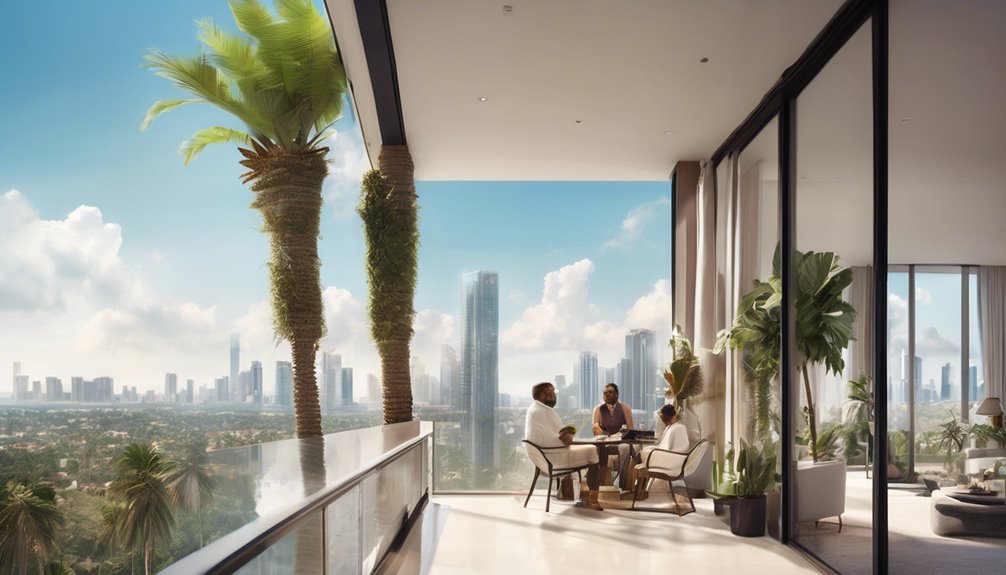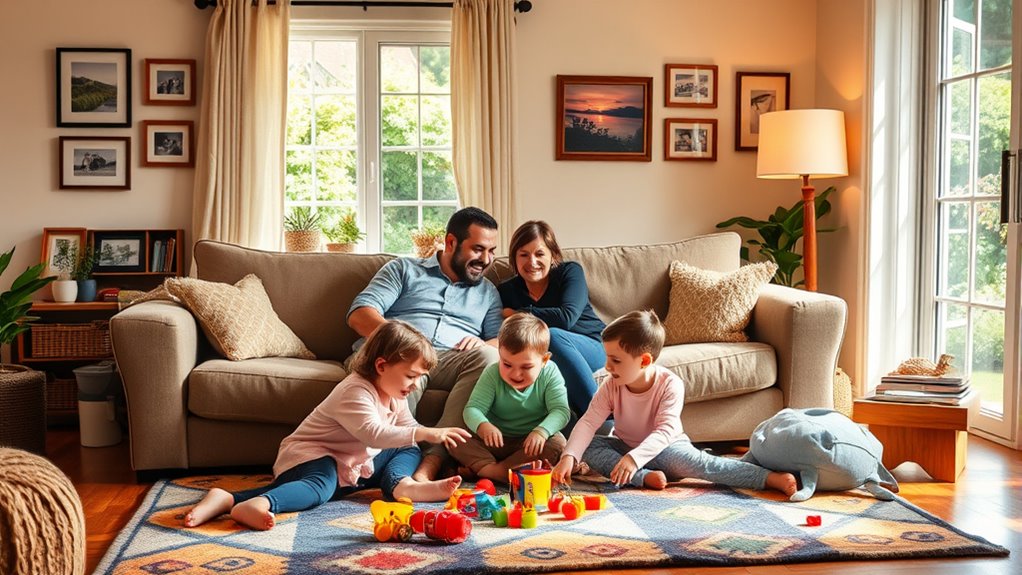
If you’re considering renting a condo in the Philippines as a foreigner, you’re in luck. The law permits non-Filipinos to lease properties without ownership, which opens up various opportunities. However, there are specific requirements and legal frameworks you need to navigate. Understanding these can make a significant difference in your rental experience. So, what’s the best way to approach this? Let’s explore the essential aspects you need to know.
Key Takeaways
- Foreigners can legally rent condos in the Philippines without property ownership restrictions.
- Lease agreements for condos typically range from six months to a year.
- A valid ID, such as a passport, is required for renting.
- Security deposits, usually equivalent to one month’s rent, are commonly required by landlords.
- Understanding tenant rights and responsibilities is crucial for a smooth rental experience.
Understanding the Legal Framework for Foreigners Renting Condos
When considering renting a condo in the Philippines, it’s important to understand the legal framework that governs foreigners in this process. As a foreigner, you can legally rent a condo without owning property, but you need to make sure that you’re following the local laws. Lease agreements typically range from six months to a year, so make certain you read the terms thoroughly. The Philippine constitution limits property ownership to Filipino citizens, which is why renting is a viable option for you. Familiarizing yourself with the rights and responsibilities outlined in the lease agreements is vital, as it protects you from potential disputes. Always consult a local expert or legal advisor to navigate the legalities effectively and guarantee a smooth renting experience.
Requirements for Renting a Condo in the Philippines
Understanding the legal framework for renting a condo in the Philippines sets the stage for what you’ll need to prepare. First, you’ll need a valid ID, such as a passport, to establish your identity. Next, landlords often require a rental agreement outlining the terms of your lease, including duration, payment schedules, and rules. It’s crucial to review this document carefully before signing. Additionally, most landlords ask for a security deposit, typically equivalent to one month’s rent, to cover any damages or unpaid rent. Be prepared to provide references or proof of income as well. Familiarizing yourself with these requirements will help guarantee a smoother renting experience in the Philippines.
Common Challenges Faced by Foreign Renters
Renting a condo in the Philippines can be exciting, but foreign renters often face unique challenges that can complicate the process. You might encounter:
- Cultural Differences: Understanding local customs and etiquette can be tricky.
- Language Barriers: Not everyone speaks English fluently, which can lead to misunderstandings.
- Legal Restrictions: Familiarizing yourself with local laws regarding foreign renters can be overwhelming.
- Limited Options: You may find fewer choices in condos that cater specifically to foreigners.
Navigating these challenges requires patience and adaptability. Embracing the cultural differences and making an effort to communicate can help ease your experience and lead to a smoother rental journey in this vibrant country.
Tips for a Successful Condo Rental Experience
Successfully maneuvering the rental landscape in the Philippines involves more than just finding the right condo; it’s about ensuring a smooth experience from start to finish. First, thoroughly read and understand the rental agreements before signing. Make sure it outlines all terms, including payment schedules, maintenance responsibilities, and security deposits. Familiarize yourself with your tenant rights to safeguard your interests. Don’t hesitate to ask questions if anything’s unclear. It’s also wise to document the property’s condition with photos before moving in; this prevents disputes when you move out. Finally, maintain open communication with your landlord throughout your stay. A respectful relationship can lead to a more pleasant living experience and may help resolve issues more easily.
Exploring the Rental Market Trends in the Philippines
As you explore the rental market in the Philippines, you’ll notice some intriguing trends shaping your options. The current landscape is influenced by various factors, including rental pricing and market demand. Here are a few trends to keep in mind:
- Increased Rental Pricing: Prices have been steadily rising, especially in urban areas.
- Short-Term Rentals: Platforms like Airbnb are reshaping demand, attracting tourists.
- Luxury Condos: High-end properties are gaining popularity among expats, driving up competition.
- Flexibility in Leases: Landlords are offering more flexible lease terms to accommodate diverse renters.
Understanding these trends can help you make informed decisions as you navigate the vibrant rental market in the Philippines.




